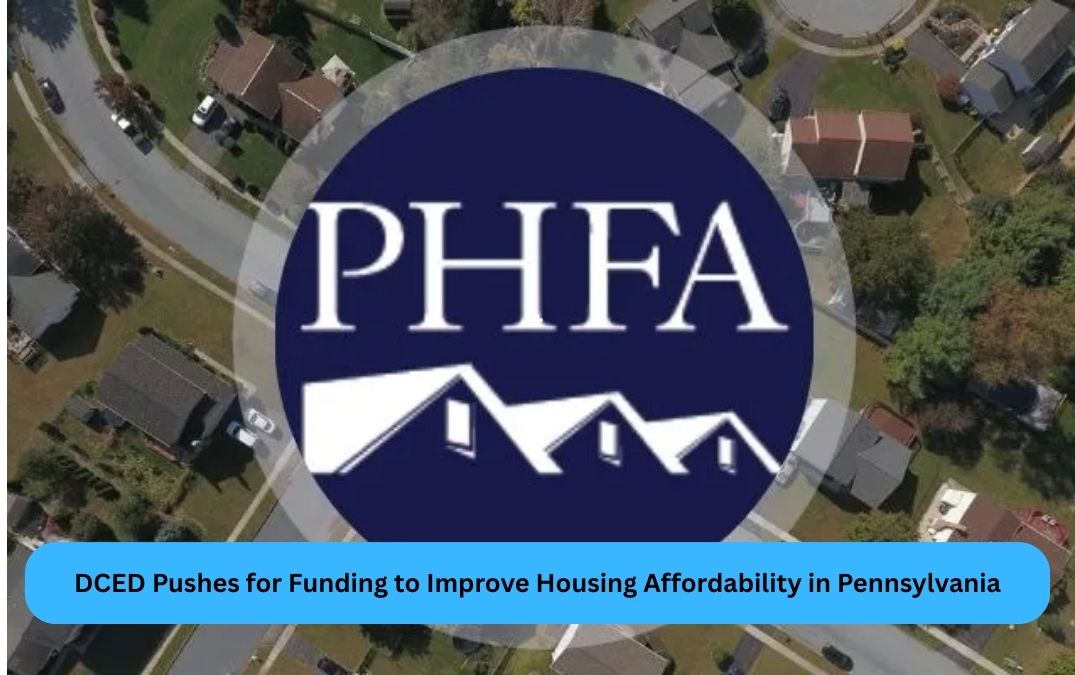The Department of Community and Economic Development (DCED), led by Secretary Rick Siger, emphasized the urgent need for funding to make housing more affordable and accessible for all Pennsylvanians. This week, Siger highlighted Governor Josh Shapiro’s dedication to solving Pennsylvania’s long-standing housing crisis.
As part of his 2025-26 budget proposal, Governor Shapiro is committed to addressing the state’s aging housing stock. The proposal includes significant investments to restore and modernize these properties, along with a new $50 million statewide housing repair fund. This fund aims to assist homeowners in need of essential repairs for their aging homes, giving them a chance to preserve their properties and maintain safe living conditions.
Shapiro’s Plan for Affordable Housing and First-Time Homebuyers
In addition to the repair fund, Governor Shapiro’s budget proposes $10 million to support first-time homebuyers with closing costs. This initiative is designed to make homeownership more accessible, particularly for those looking to establish generational wealth.
Furthermore, the budget includes $1 million to help municipalities develop growth-oriented housing policies through the State Planning Board. Siger stressed that these steps are part of a broader effort to create affordable housing options, support economic growth, and improve housing accessibility across the Commonwealth.
A Coordinated Approach to Housing
In September, Governor Shapiro signed an executive order creating Pennsylvania’s first-ever Housing Action Plan. Since then, the administration has been gathering feedback from local governments, developers, nonprofits, and labor leaders. This collaboration aims to create a unified, statewide housing solution.
The finalized housing plan will be unveiled in the coming months, but Siger identified key actions already outlined in the governor’s 2025-26 budget:
- $50 million housing repair fund to assist homeowners with necessary repairs.
- $10 million for first-time homebuyer closing costs to help families get into their own homes.
- Increased funding for the State Planning Board to support municipalities with zoning, permitting, and code enforcement challenges.
- Creation of an Interagency Council on Homelessness to improve coordination and support for homeless individuals.
- Increase in the PA Housing Affordability and Rehabilitation Enhancement Fund (PHARE) by an additional $10 million, bringing the total to $110 million by 2028. This funding has already led to the construction of 2,000 new homes and apartments and repairs to 3,200 others.
- Sealing eviction records for individuals who were not evicted, improving housing security and access to affordable housing and employment.
Property Tax/Rent Rebate Program Extension
In other housing-related news, members of the Shapiro Administration also announced an extension of the Property Tax/Rent Rebate (PTRR) program deadline to December 31, 2025. This extension allows eligible older Pennsylvanians, widows and widowers, and residents with disabilities more time to apply for rebates on property taxes or rent paid in 2024.
Last year, the PTRR program provided 522,434 rebates totaling $319.2 million. This was a significant increase from the prior year, when 405,493 rebates totaling $192 million were distributed. The Department of Revenue has already received approximately 400,000 applications this year, continuing the program’s positive impact on Pennsylvania residents.
Senate Bill 666 and Modernization of Pennsylvania’s Casinos
In other legislative news, Pennsylvania Senate Bill 666, which aims to modernize the state’s casino industry, is progressing. The bill would give casinos more flexibility in managing their slot machines by removing the outdated requirement that casinos maintain a minimum of 1,500 slot machines. Instead, the bill allows casinos to adjust the number of machines based on demand, while still requiring regulatory approval for significant reductions. This bill is designed to make Pennsylvania casinos more competitive in today’s changing gaming landscape.
Senate Bills to Address Workforce Shortages in Long-Term Care
Senator Dave Argall is advancing legislation to address the growing workforce crisis in Pennsylvania’s long-term care sector. Senate Bill 115, approved by the Senate, would allow individuals without a high school diploma or GED to take a competency exam for long-term care certification. Additionally, Senate Bill 114, which expands training and eligibility for nurse aide certification, is moving forward to help alleviate staffing shortages in long-term care facilities.
With Pennsylvania’s aging population expected to double by 2040, these measures aim to ensure that there are enough qualified professionals to meet the growing demand for long-term care services.












